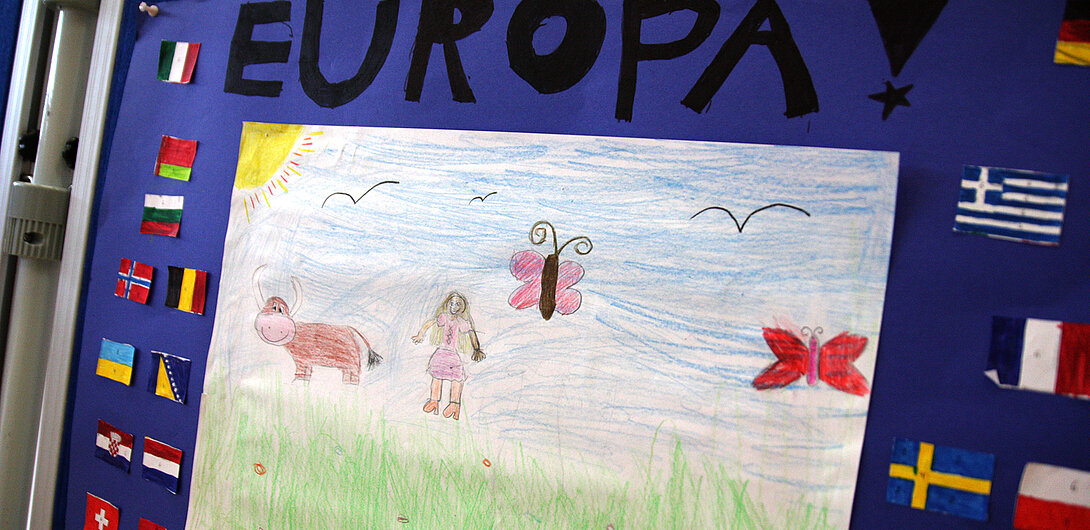European Hours aim to foster a European identity amongst the pupils, to encourage working together, to enhance communication and socialising across language sections, to develop mutual respect and support for one another. A common topic with European dimension will be used.
General goals:
- Strengthening of confidence in one's own cultural identity as bedrock for the development as European and world citizen
- Promoting a European and global attitude
- Promoting tolerance, cooperation, communication and interest
- Encouraging the use of other languages as working language
European Hours projects promote the development of European thinking, feelings and skills:
European thinking (knowledge)
- Basic knowledge in defined content areas
- Facts and figures· Past, present, future
- Differences and similarities European feeling (attitude)
- Differences and similarities in Europe as well as between Europe and other regions, countries and continents
- Different attitudes and opinions on Europe
- Advantages and disadvantages of a united Europe
- Existing European values
European demeanor (skills)
- Working together and playing together
- Expressing feelings that are based on respect for others
- Including elements from different regions, countries and continents in the work of the students· Experiencing different strategies using creativity and imagination
- Developing a shared commitment and shared vision
- Equality in intercultural communication
- Using different languages
The general framework for learning objectives in the field of European Hours consists of five content areas covered in the three primary years P3, P4 and P5.
Content area 1: European Community
- Pupils' personalities
- People with whom we live together
- Living in Europe - rights and duties
- Content Area 2: Culture and Civilization
- Geography of Europe
- Culture and traditions in Europe (fashion, dance)
- Sports in Europe· History of Europe
Content Area 3: Environment
- Food and drinks in Europe
- Fauna and flora of Europe
- Environmental protection
- Content Area 4: A developing world
- Transport in Europe· Economy and finance of Europe
- Craft and science in Europe (computer programming, robotics)
Content 5: Living in a world of communication
- Languages in Europe
- Networking in Europe
- Modern means of communication in Europe (school newspaper, media literacy)
The choir, orchestra and dance groups present their skills learned at Advent celebrations, on Europe Day and at the school yard celebrations. All other courses contribute to an exhibition on Europe Day.

